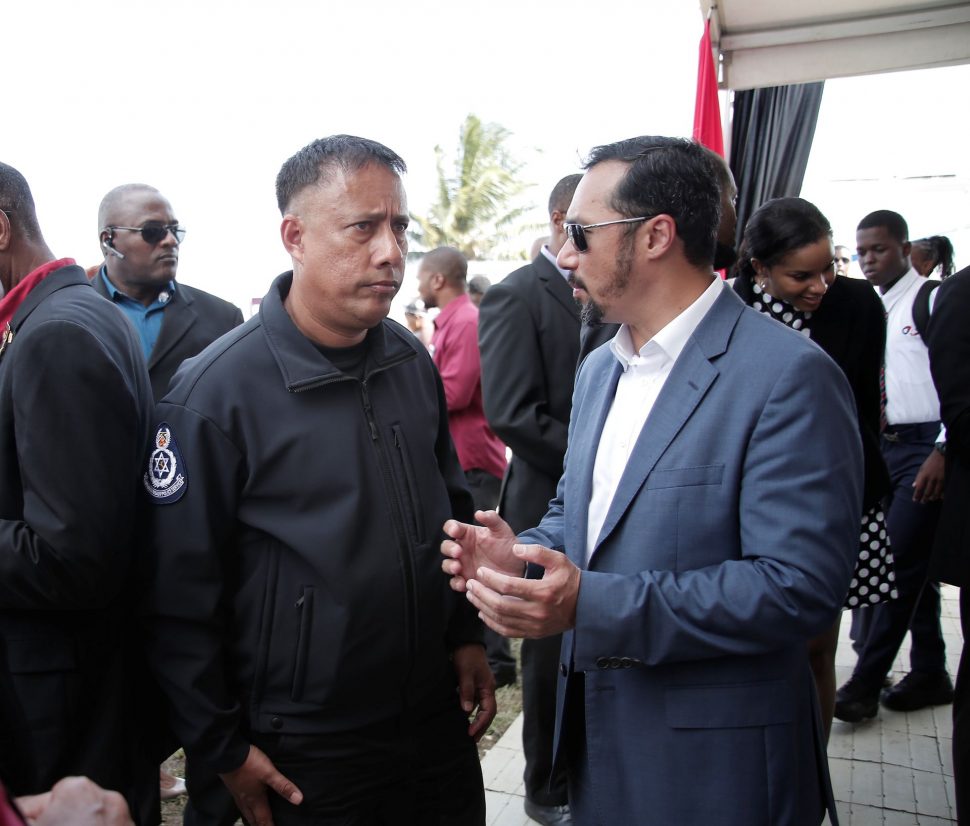(Trinidad Guardian) The infiltration of criminal gangs which have been siphoning millions of taxpayers dollars from Government projects and contractors has been a problem for over two decades, according to Prime Minister Dr Keith Rowley.
And he conceded that there was no easy solution to the problem but he intends to stamp it out.
The head of the National Security Council comments came even as one of his own MP’s complained about death threats as a criminal gang demanded a share in a $176 m road paving project in Moruga and a damning Special Branch report which detailed the distribution of $6 m in contracts to seven gang leaders from two PNM-controlled regional corporations.
His position was stronger than his comment last week where he put the responsibility on the police to charge gang members when questioned about gangsters getting State contracts.
In the past weeks, the Commissioner of Police has linked State funding of gangs to the out-of-control murder spike.
The Prime Minister spoke on the issue of criminals benefiting from government contracts while giving remarks at the sod-turning ceremony for the Carenage Police Station, on Tuesday.
Rowley traced the growth of criminals benefiting from State programmes to as far back as the Unemployment Relief Programme.
“Because programmes like URP and to a lesser extent CEPEP and other small programmes like in the HDC, instead of being done by the State, under the hands of public officials, we moved into this new environment of awarding contracts. We jumped from the frying pan into the fire,” said Rowley who said back then, workers in those programmes would cash cheques at the Central Bank, then hand money to gangsters waiting outside either out of fear or collusion.
But he said the situation has worsened since State contracts were being issued instead.
“And if you don’t understand that, you don’t understand your country. Because every project has a project owner that won a contract. But when a clerk four or a clerk three was in charge, they too were a part of the problem because they were acting out of fear in some instance, in some instance out of wotlessness. Some people who didn’t come to work were signed off as having worked, people were on the gang and didn’t work but get pay and then petty criminals were there,” said Rowley.
“Remember ghost gangs, the gang that didn’t exist but on the paysheet. But at least that gang wasn’t killing you. This one killing you. And then competition started for this largest,” he admitted.
The Prime Minister acknowledged the severe criticism aimed at him over the award of contracts to gangs but stated much of the utterances did not reveal a problem unknown to the government or the wider population. He said the Government was working to address the issue.
“So anybody here come telling you that is this government or this Prime Minister or this so and so, they are simply trying to score points on a problem that we are aware of. It’s been with us for quite some time. It is not a simple problem to get rid of because it has worked into our administrative systems. And we have to work our way out of it. And we will certainly do so,” said the Prime Minister, who did not elaborate on how he intends to go about the mission.
Over the past month, Commissioner of Police Gary Griffith had said his officers were placed in a disadvantaged position because State contracts had been awarded to gang leaders, allowing them to finance their criminal activity further. Griffith said the awarding of contracts to gangsters could be connected to the rise of homicides over the past 15 years.
During his address, Minister of National Security Stuart Young said law enforcement officials intended to clamp down on reports of extortion, particularly in connection with government-issued contracts.

